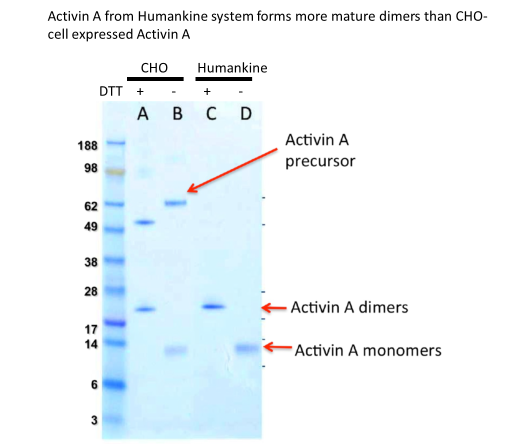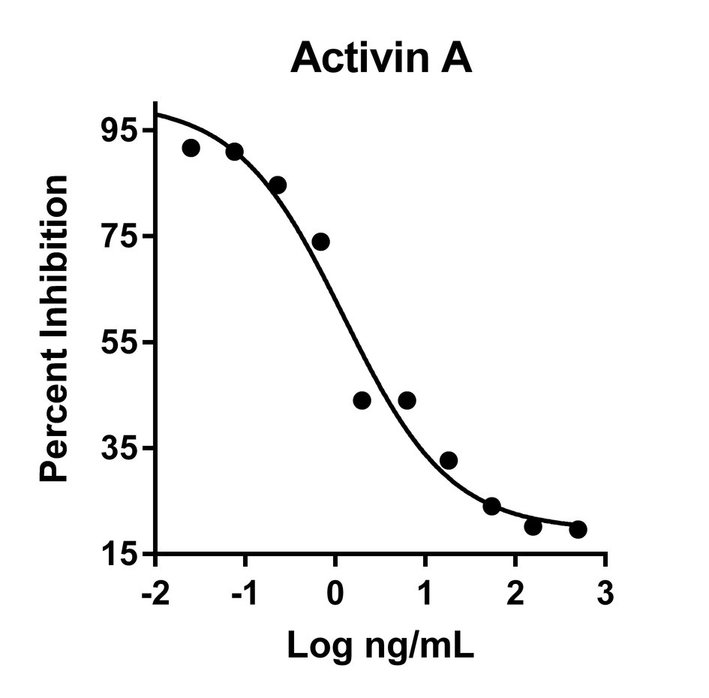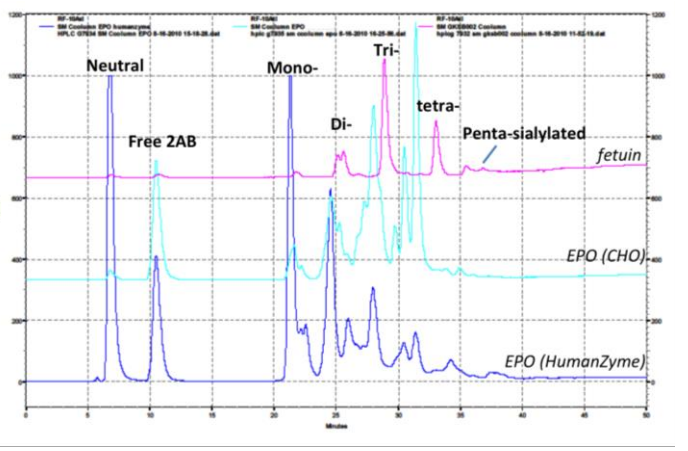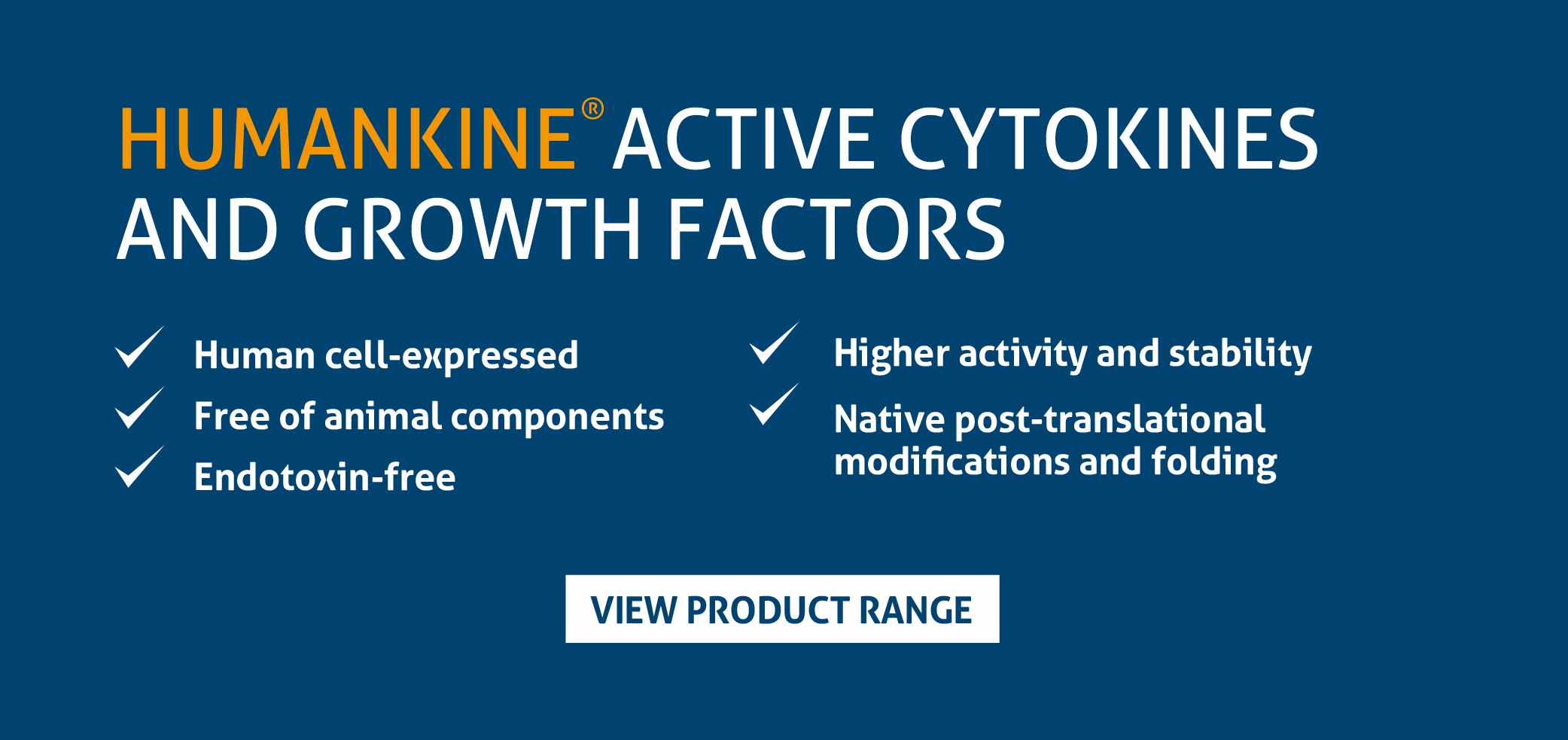Activin A
Recombinant human protein Activin A: An Alpha in the TGF Beta Family
One of the defining characteristics of life is the ability to reproduce. In humans, a major player in setting up and maintaining reproductive machinery is activin A. It is a heterodimeric protein that is a member of the TGF Beta family (Figure 1). Activin A acts in paracrine and autocrine mechanisms, binding to its cognate receptor and exerting downstream effects through the Smad pathway (Figure 2). Besides reproduction, activin A has been implicated in the regulation of islets and the immune response. For regenerative medicine, it is used to help maintain stem cell pluripotency and self-renewal in vitro (1, 2).
Proteintech’s HumanKine® Activin A
Proteintech’s HumanKine® Activin A is made from HEK293 human cells, conferring authentic glycosylation and folding in addition to superior stability and activity.
| Product name | Catalog number | ED50 | Purity |
| Recombinant human Activin A protein | HZ-1138 | 3.4 ng/m | >95% |
Discovery of Activin A
Activin A’s discovery was published by two groups in back-to-back Nature papers (3, 4). Both identified it using purified extracts of pig follicular fluid. The extracts containing activin A were found to stimulate the release of follicle-stimulating hormone from rat anterior pituitary cells and were biochemically characterized. Subsequent studies discovered that it plays integral roles in reproduction. It is critical for female fertility with roles in development and luteolysis (5). For males, deficiency can impact testes size and function (6). Mutations of activin A are also associated with reproductive cancers (7).
There is much excitement surrounding activin A in the literature. It has recently been identified as a promising biomarker for kidney injury (8) and has been implicated in lung (9) and breast (10) cancers. Reproduction may have been the start of activin A’s scientific story, but there is still more to be told.
| Figure 1 |
 |
| SDS-PAGE gel with Coomassie blue staining of purified activin A from CHO cell and HumanKine® systems, demonstrating the formation of mature activin A dimers. |
| Figure 2 |
 |
| The activity of HumanKine® Activin A was determined by the dose-dependent inhibition of proliferation of the MPC11 cell line (mouse plasmacytoma cell line) using Promega CellTiter96® Aqueous Non-Radioactive Cell Proliferation Assay. |
-
The Biology Of Activin: Recent Advances In Structure, Regulation And Function
-
Activin A Maintains Pluripotency of Human Embryonic Stem Cells in the Absence of Feeder Layers
-
Purification and characterization of an FSH releasing protein from porcine ovarian follicular fluid
-
Pituitary FSH is released by a heterodimer of the β-subunits from the two forms of inhibin
-
Different phenotypes for mice deficient in either activins or activin receptor type II
-
Activins and activin antagonists in the human ovary and ovarian cancer
-
Identification of Urinary Activin A as a Novel Biomarker Reflecting the Severity of Acute Kidney Injury
-
High circulating activin A level is associated with tumor progression and predicts poor prognosis in lung adenocarcinoma
- MicroRNA-384 inhibits the progression of breast cancer by targeting ACVR1
Related Content
cGMP Grade Cytokines & Growth Factors
Cytokines and Growth Factors: Why you should give a HEK
FGF Basic-TS: No media changes required over the weekend
Why human cell expressed proteins are superior for clinical applications
What do you get when you buy a GMP-grade product?
Considerations when choosing recombinant proteins for your research applications
HumanKine® Growth Factors are the perfect tool for your cerebral organoid research
Human serum albumin’s importance in biology and biotech

Support
Newsletter Signup
Stay up-to-date with our latest news and events. New to Proteintech? Get 10% off your first order when you sign up.


